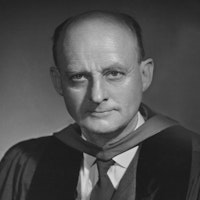One of the most fruitful sources of self-deception in the ministry is the proclamation of great ideals and principles without any clue to their relation to the controversial issues of the day.
Reinhold Niebuhr

Controversial Situations
Topic: Wisdom & Understanding
“One of the most fruitful sources of self-deception in the ministry is the proclamation of great ideals and principles without any clue to their relation to the controversial issues of the day…. I have myself too frequently avoided the specific application of general principles to controversial situations to be able to deny what really goes on in the mind of the preacher when he is doing this.”
Karl Paul Reinhold Niebuhr, June 21, 1892 – June 1, 1971) was an American theologian, ethicist, commentator on politics and public affairs, and professor at Union Theological Seminary for more than 30 years. Niebuhr was one of America's leading public intellectuals for several decades of the 20th century and received the Presidential Medal of Freedom in 1964. A public theologian, he wrote and spoke frequently about the intersection of religion, politics, and public policy, with his most influential books including Moral Man and Immoral Society and The Nature and Destiny of Man, the second of which Modern Library ranked one of the top 20 nonfiction books of the twentieth century.
Leaves from the Notebook of a Tamed Cynic
Niebuhr, Reinhold. Leaves from the Notebook of a Tamed Cynic. New York: Living Age, 1957, pp. 218-19,

Reinhold Niebuhr
Copyright © 2017 – 2024 LuminaryQuotes.com About Us

Martin E. Marty: Reinhold Niebuhr: Public Theology and the American Experience
His [Niebuhr’s] first book was dedicated to his pastor father and to his mother “who for twelve years had shared with me the work of a Christian pastorate,” [at the Bethel Evangelical Church, Detroit, Michigan] one which was memorialized in his most nearly autobiographical work, a sketchbook called Leaves from the Notebooks of a Tamed Cynic.
Later, during his subsequent career at New York’s Union Theological Seminary, he said “that the Detroit facts determined my development more than any books which I may have read”–(“Intellectual Autobiography”).
Ten years after moving to New York he said “Even at Union the gradual unfolding of my theological ideas [had] come not so much through study as through the pressure of world events.”–[Ten Years that Shook my World,” Christian Century, April 26, 1939, p. 545].
–Martin E. Marty [Reinhold Niebuhr: Public Theology and the American Experience, The Journal of Religion, Vol. 54, No. 4, Oct., 1974) pp. 332-359.